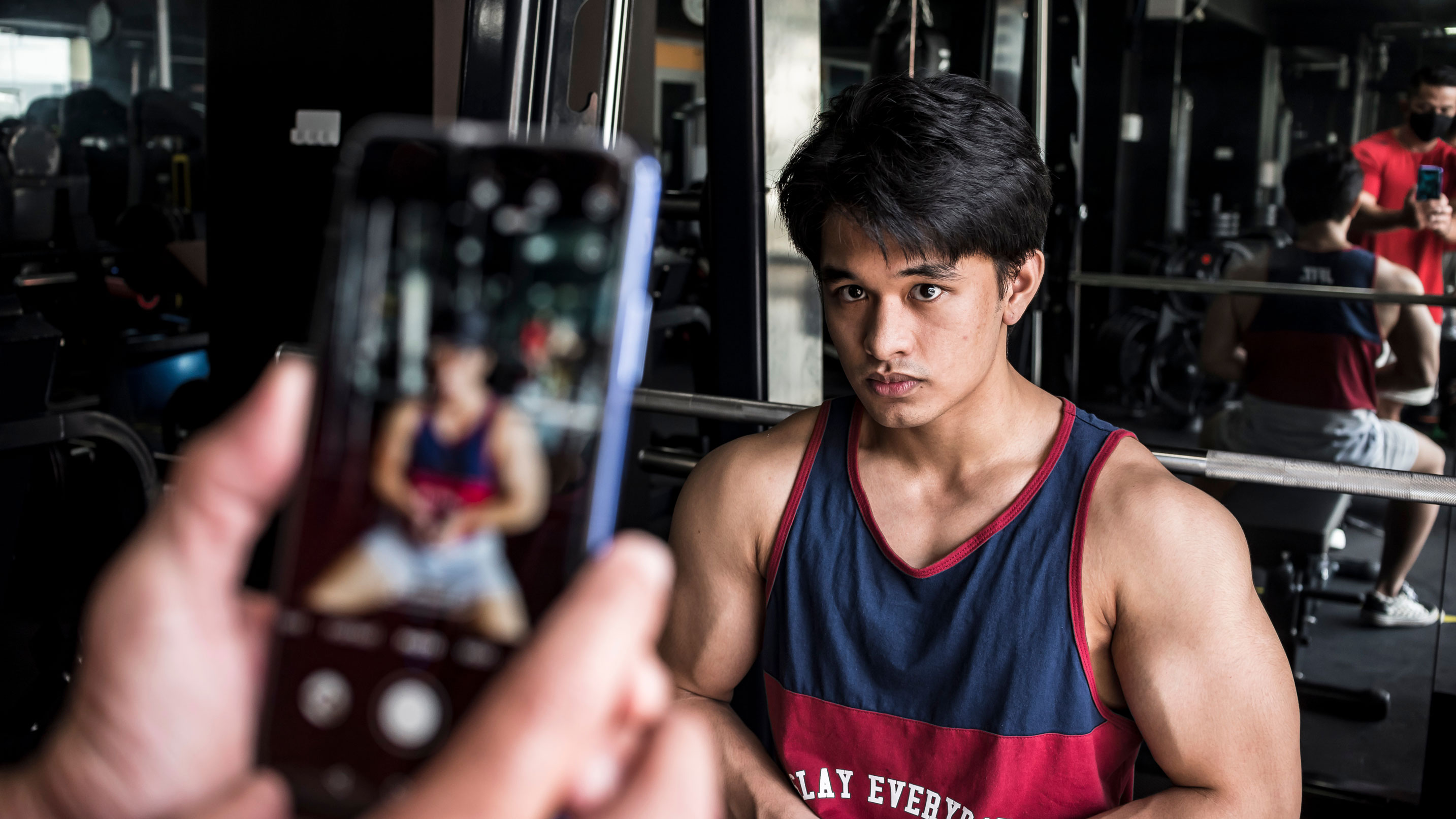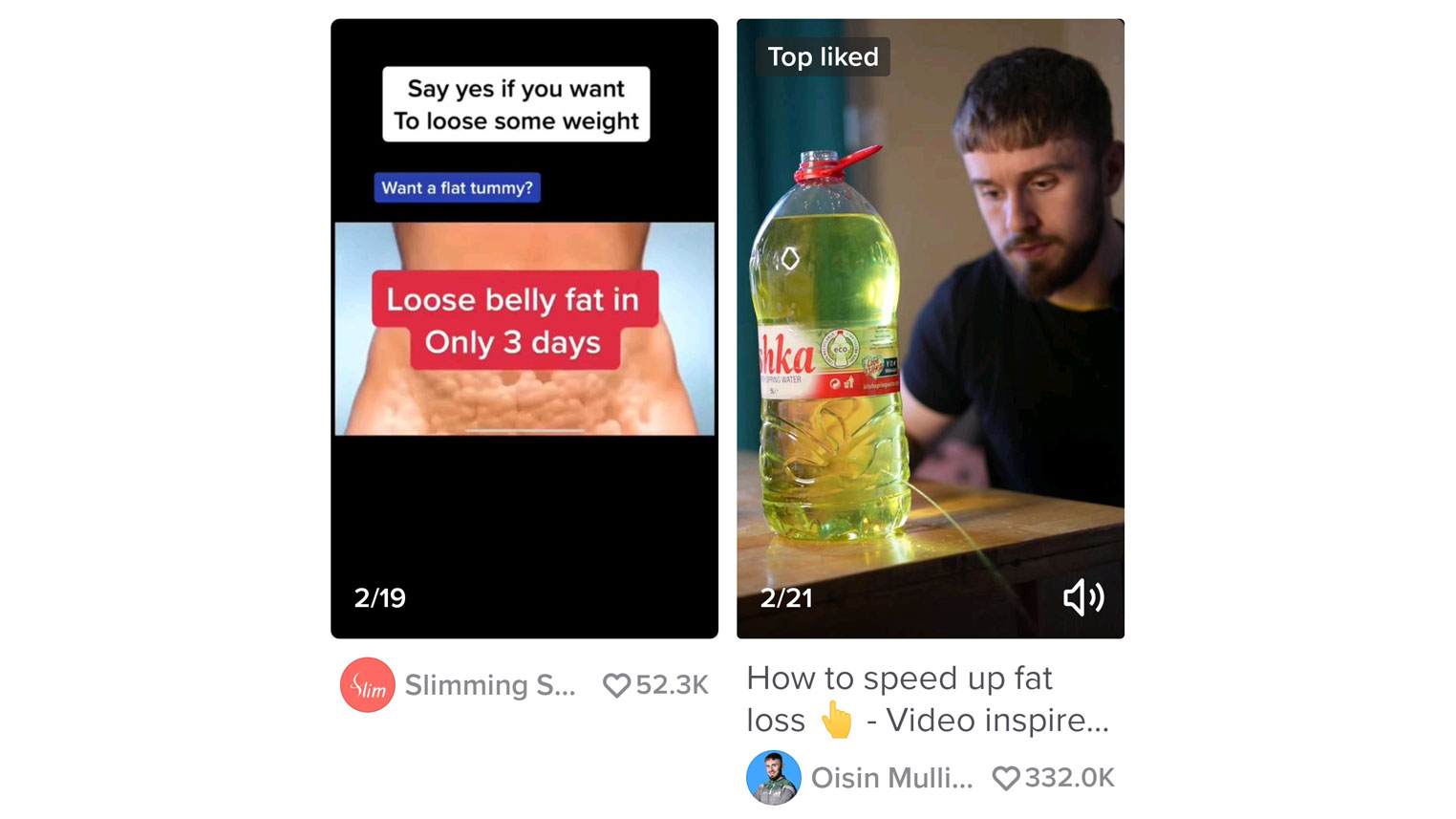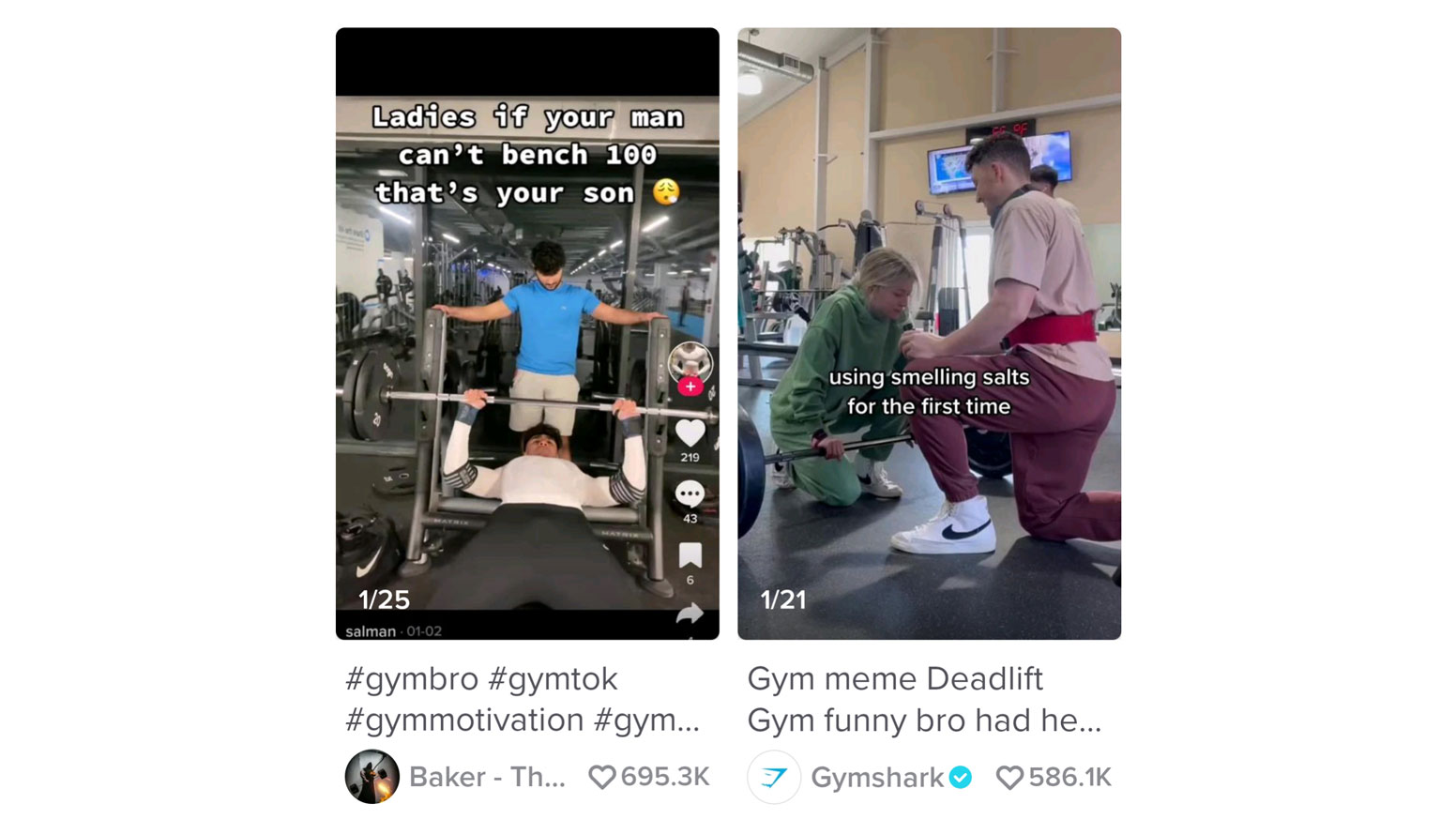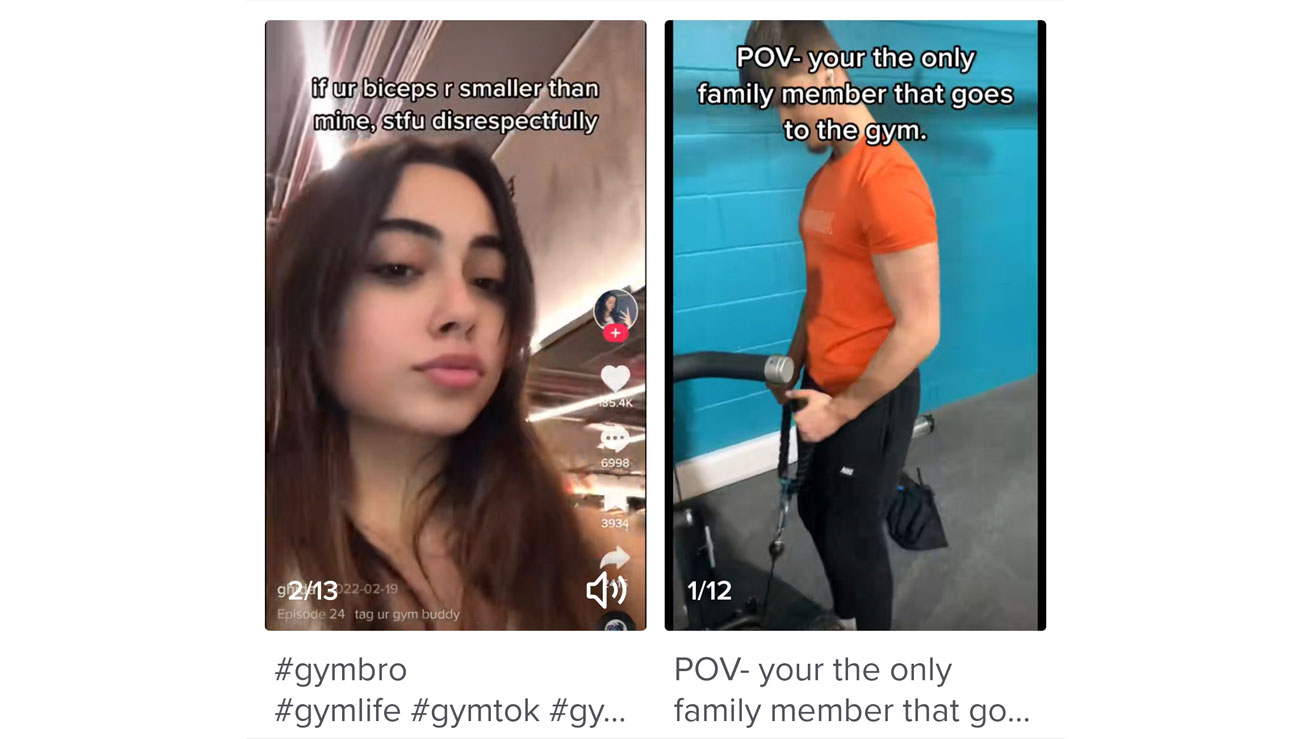I just checked out gym TikTok for the first time, and it’s already a wild ride
I just downloaded TikTok for the first time

TikTok seems to be a bit like New York. It’s so massive, so dense, and there’s so much out there to explore that it’s truly difficult to say you’ve been there and seen it all.
As TechRadar’s resident fitness person, I can normally be found neck-deep in fitness industry content, from looking at emerging trends in the best smartwatches to the technology used in the best electric bikes available now. However, there’s a whole aspect of the fitness industry I’ve been overlooking – TikTok and its influence on the gym and fitness culture.
Fitness influencers have been one of the driving forces in the health and fitness industry for ages. Initially, it was a few big names on YouTube and Instagram really making waves, but TikTok seems to have changed the game. Content moves quicker, evolves faster, and has become shorter and easier to digest. New influencers, and the supplement/activewear companies they hock with discount codes, seem to spring up overnight. And if you spend any time looking at fitness content online, it’s not hard to notice the influx of content being recorded in public gyms and all the problems that has brought with it.
Up until now, any content from the platform I consumed was recycled and served to me via YouTube shorts or digest videos compiling several of the month’s hottest TikToks in a single video. I'm 31. I'm not old, nor am I unfamiliar with how technology works. But TikTok, to paraphrase Grandpa Simpson, feels "weird and scary to me."
Repulsed and intrigued in equal measure, I decided to download the app myself (on one of the best phones I could find in TR Towers) and dive in, sampling the produce of the world’s chief dopamine farm straight from the field. My findings were very interesting, and I was able to sort the videos I was served up when searching 'gym,' 'fitness,' 'workout,' 'gains' and 'lose fat' into several distinct categories listed below.

Advice
Fitness tips, workouts, gym hacks, recipes… TikTok has it all. In the few minutes I scrolled through the above keywords, I found reams of content dedicated to showing workout recommendations and tips to lose weight or bulk up.
And you know what? Some of the advice wasn’t bad. One of the first videos I came across was a post about training your glutes. It had been liked almost 320,000 times, and while the workout format was typical of TikTok (stop doing this, do this instead), the advice was solid and the poster was a real athlete with a personal training qualification. A good start.
Unfortunately, this trend didn’t continue. Almost every other piece of advice I found had been posted by someone who wasn’t a trainer, just a fit person. One guy posting workout advice, with hundreds of thousands of followers, was just 17.
Some of the advice I found was good, such as doing more daily walking to induce more non-exercise activity thermogenesis. Some of the advice was absolute nonsense, like tips on sculpting a better jawline or losing fat in days. All of it was presented in a bombastic fashion, burying the lede to encourage you to watch the video all the way through.
Sometimes, good and bad advice came from the same account. Either way, the poster was rarely qualified to dispense fitness advice and almost all popular accounts over a certain threshold of followers had affiliate links to supplement companies and activewear brands. For anyone who hasn’t spent the last seven years writing about fitness as I have, it would be incredibly difficult to sort the good advice from the bad.
@chinesemuscle ♬ Canyons - Official Sound Studio
Skits
I saw a lot of cringe-inducing comedy skits filmed in public gyms – most clearly staged, some pretending to be real. Some of them are staged encounters with a gym crush, some detail the different types of people who go to the gym, while others joke about exercising with the weight used by their partner. In one memorable video, a man introduced his partner to using smelling salts before her deadlift for the first time, and there was another about ‘dry-scooping’, or using pre-workout powder without mixing it with water first.
Almost all these videos are filmed in public gyms, and in almost all, there are ordinary gymgoers in the background who did not ask to be a part of this. Influencers, please do this at home, or don’t do it at all. 0/10.

Showing off
The tags I searched for are rife with progress pictures, calisthenics stunts, and miscellaneous flirty gym videos to grab a user’s attention. There’s nothing inherently wrong with posting your achievements online, especially if it’s something you’ve worked very hard for – but sometimes, there’s an underlying conceit of shaming people who aren’t as buff, strong or fit as the poster.
One account posted an image of a girl flexing her bicep, with a caption telling anyone with smaller arms to ‘stfu disrespectfully.’ Another account posts a video of a man bench pressing with the legend, 'If your man benches less than 100 that’s your daughter.’ Another account showed a video of a 19-year-old who had allegedly taken his first steroid cycle.
It’s easy to see how teenagers looking at videos like this could be easily led to believe that getting a certain body type is the most important thing in the world and that anyone who didn’t have one was lesser. Health isn’t all about how your body looks or how much you can lift. For the sake of your mental health, I’d be very cautious about consuming too much of this sort of content.

Panning for gold
There is some good advice, funny content, and motivational gymspiration in the TikTok jungle. But the way it serves the user content, and the quickfire, short-form nature of the videos, means the eye-popping, attention-grabbing stuff is what gets reactions. In an industry that should be all about slow, steady, healthy progression, that’s usually bad news.
Fad workouts and unqualified influencers have been plaguing the fitness industry since Jane Fonda and Atkins but TikTok means the power to create this sort of content has been democratized, and it disseminates misinformation at a much faster rate.
Based on my brief first look at the platform, there seems to be some great stuff in the weeds. However, before following fitness advice from someone whose only qualification is that they’re shredded, be sure to do your research – the advice could be completely unfounded in science.
Get daily insight, inspiration and deals in your inbox
Sign up for breaking news, reviews, opinion, top tech deals, and more.

Matt is TechRadar's expert on all things fitness, wellness and wearable tech.
A former staffer at Men's Health, he holds a Master's Degree in journalism from Cardiff and has written for brands like Runner's World, Women's Health, Men's Fitness, LiveScience and Fit&Well on everything fitness tech, exercise, nutrition and mental wellbeing.
Matt's a keen runner, ex-kickboxer, not averse to the odd yoga flow, and insists everyone should stretch every morning. When he’s not training or writing about health and fitness, he can be found reading doorstop-thick fantasy books with lots of fictional maps in them.